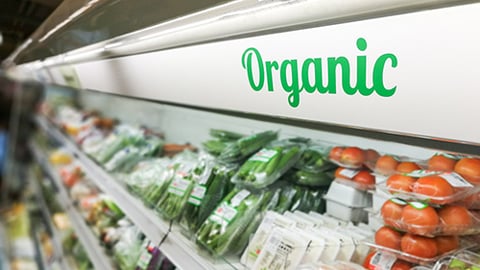Specialty Foods Gain Bigger Spotlight in 2020
Specialty foods such as plant-based meat alternatives and bread and baked goods are enjoying significant growth — a trend credited not only to the ongoing COVID-19 outbreak but the consumer desires of younger shoppers, according to new research.
A new report Tuesday from the Specialty Food Association (SFA) found that the specialty food industry market hit some $158.4 billion in sales last year, a 10.7% increase since 2017.
The new Specialty Food Industry Report also found that in 2019, “more categories than ever before (12) achieved at least $2 billion in annual sales.”
"The impact of COVID-19 on the specialty food industry cannot be underestimated," said Bill Lynch, interim president of the SFA. "Food retail is an essential business channel and while that has been beneficial to sales for our members, many of whom are small businesses, the overall landscape is both optimistic and uncertain.”
But it’s not just the pandemic that has led to those increased sales, according to the report. Some of the youngest consumers out there are helping to boost revenue for sellers of specialty foods, with 76% of Gen Z shoppers and 82% of millennials buying such food retail products. That compares to 70% of Gen X consumers and 59% of baby boomers.
As measured by the highest dollar growth, the top five specialty food categories in the new report are:
- Refrigerated Plant-based Meat Alternatives
- Shelf-stable Creams and Creamers
- Refrigerated Creams and Creamers
- Refrigerated RTD Tea and Coffee
- Frozen Breakfast Foods
As measured by the retail sales, the top five categories are:
- Cheese and Plant-based Cheese
- Meat, Poultry, Seafood (Frozen and Refrigerated)
- Chips, Pretzels, Snacks
- Coffee and Hot Cocoa (non-RTD)
- Bread and Baked Goods
The report comes as plant-based meat alternative provider Impossible Foods (which sells the Impossible Burger product line) keeps growing, another sign of the ongoing rise of specialty foods. Earlier in June, for instance, it said it had landed another partnership as consumers continue to eat more of the plant-based meat substitute. The Habit Burger Grill, a California-based restaurant company, said that it has brought “the plant-based meat to select locations.”
The company also is in the midst of a retail growth spurt. Impossible Foods has increased its retail footprint nearly 20-fold since the start of 2020, and its flagship product is now available in over 3,000 grocery stores nationwide, including Albertsons, Fred Meyer, Gelson’s, H-E-B, Kroger, Ralphs, Safeway, Smith’s, Wegmans and more,” the company said.





